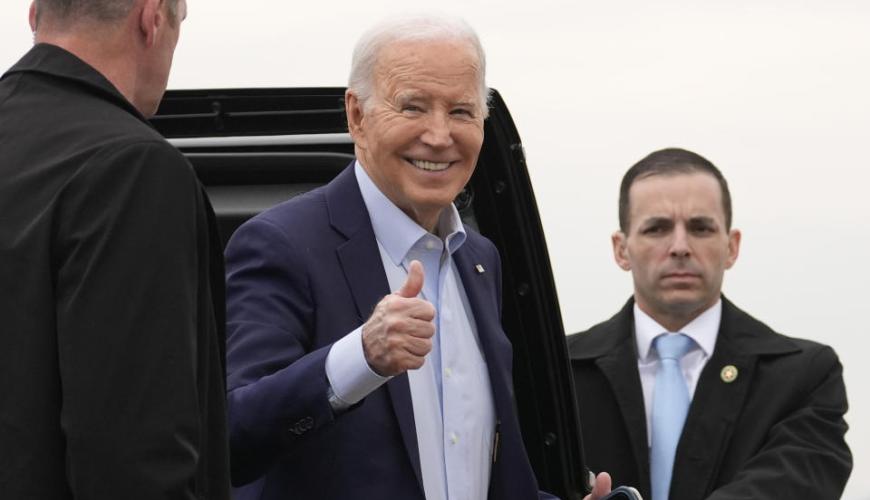This week in Bidenomics: Heard much about 'Bidenflation' lately?

It’s a clunky portmanteau, so if “Bidenflation” is on the way out, our ears might be just as grateful as our wallets.
Relief does seem to be coming on both counts. By a variety of measures, voters are gradually growing less leery of inflation and more confident that a solid economy will last for a while. If you squint, there’s a corresponding improvement in President Joe Biden’s reelection odds.
Inflation peaked at 9% in June 2022 and has since dropped to a much more manageable 3.2%. But the shock of spiraling prices has stayed with consumers, who have remained gloomy about the economy and prospects for the future. Biden’s approval rating dropped as inflation rose, but has not recovered as inflation reversed.
Inflation fever may finally be breaking. In the latest University of Michigan confidence survey, respondents said they expect the inflation rate one year from now to be just 2.9%. That’s the lowest inflation outlook since December 2020, one month before Biden took office. When Biden became president in January 2021, the one-year outlook for inflation was 3%.
What consumers expect inflation to do can be just as important as what actually happens, because it affects people’s willingness to spend money today and their attitudes about, well, practically everything. Surveys have consistently shown that Americans are deeply gloomy, even though the labor market is strong, unemployment is low, and growth is solid.
Web search trends also suggest inflation is taking up less American mindshare. Searches for “inflation” and “gas prices” skyrocketed in 2022 as inflation was peaking and gas prices hit an unprecedented average of $5 per gallon. Such searches fell off as inflation eased, and they’re now at or near the low levels from early in Biden’s presidency when inflation wasn’t yet a concern.
Inflation has been Biden’s biggest economic problem and perhaps the biggest barrier to his reelection. Republicans have pounded Democrats for “Bidenflation,” with some success. Though the rate of inflation has come down sharply, prices are still rising and most price hikes remain. Higher costs for food, rent, and staples are taking a bigger bite out of incomes than before Biden took office, damaging his popularity.
With seven months until voters go to the polls, the race is on to see if inflation and the economic outlook improve enough to give Biden a decisive edge in November. If Republicans are hammering the incumbent for “Bidenflation” when it’s not something voters are much worried about anymore, it could flip the script and make Republicans seem like the ones who are out of touch, instead of a president trying to assure voters the economy is doing great when higher prices are devouring their paychecks.
The trend does seem to be going Biden’s way. The University of Michigan’s overall sentiment index has been rising out of recessionary territory and is now at the highest level since July 21, just five months into Biden’s term.
“Strong performance in equity markets this month may have helped lift the index slightly,” Oxford Economics reported on March 28, “but the real driver of the improvement in the index seems to be increasing confidence that inflation will continue to soften.”
